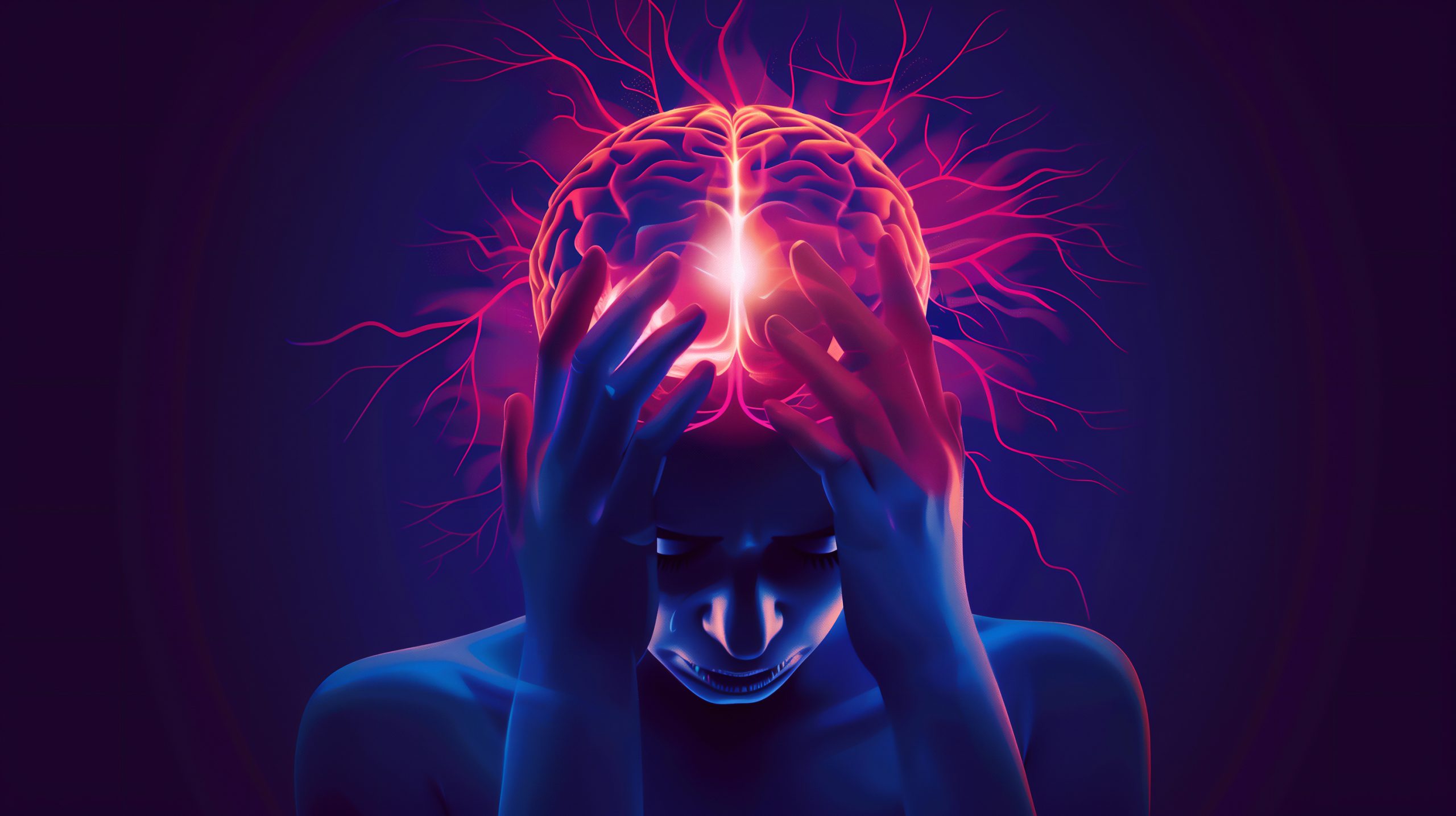It’s certain that you or someone you know is affected by chronic or acute neurological pain.
Headaches affect around 40% (3.2B) of the population and are more common in females than males. Migraine is estimated to affect more than 10-15% of people worldwide – that’s 800 Million+ people!
Irritated, inflamed or damaged nerves in the body can bring on a headache. Causes may include:
- haemorrhages
- hypertension
- diabetes
- infection
- inflammation
Headaches occur when pain-sensitive nerve endings called nociceptors react to triggers that send messages through the trigeminal nerve to the thalamus, the brain’s “relay station” for pain sensation from all over the body. These include:
- dehyration
- injury
- infections
- stress
- certain foods
- certain odors
- caffeine withdrawal
- medications
- muscular tension
- dental or jaw problems
- eye problems
- hormonal influences
Headache and migraine are essentially inflammation. Fortunately you can use natural anti-inflammatory curcumin / turmeric to reduce inflammation to reduce pain.
A meta-analysis conducted in 2023 of randomized studies indicated that the active ingredient in Turmeric, Curcumin, significantly decreases migraine symptoms and the frequency of migraine episodes. There is also evidence that ginger used with Turmeric / Curcumin helps ease the nausea commonly associated with migraine.
Our Factor 8 Joint Ease Capsules contain Curcumin, Boswellia, and Zingiber Officinate – better known as Ginger.
Buy Factor 8 Joint Ease Capsules now
A 2020 study has suggested that dehydration significantly increases the frequency and severity of migraine. Stay hydrated by drinking at least 2 liters of water each day. This can help prevent migraine episodes and accompanying headaches. It is also beneficial to overall health.
For added migraine-related benefits, try drinking a mineral water which contains contains magnesium, which can help to stave off migraine.
Caution though – an older study found that drinking cold water too quickly can also trigger migraine.
Abstract from 22 May 2o23 PubMed
Migraine, a neurovascular condition, is a chronic and lifelong disease that affects about 15% of the population worldwide. Although the exact pathophysiology and etiology of migraine are still unclear, oxidative stress, inflammation, and neuroendocrine imbalances are identified as the critical risk factors for migraine attacks. Curcumin is an active component and a polyphenolic diketone compound extracted from turmeric. Curcumin is a promising candidate for preventing and controlling migraine due to its anti‑inflammatory, antioxidative, anti-protein aggregate, and analgesic effects. In the present review, we have evaluated experimental and clinical studies investigating the impact of liposomal curcumin and nano-curcumin on the frequency and severity of migraine attacks in patients. Although the results are promising, more studies should be conducted in this area to show the exact efficacies of curcumin on clinical symptoms of migraine and investigate its potential mechanisms.
